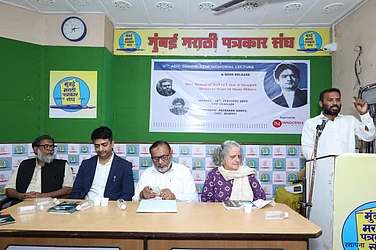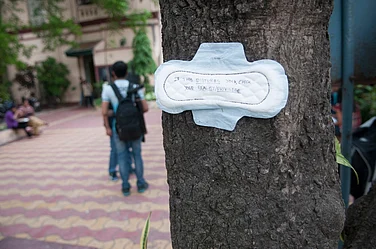There cannot be a school without a playground, the Supreme Court said on Friday, while ordering removal of encroachment from the premises of a school in Haryana.
A bench of Justices MR Shah and BV Nagarathna dubbed as "a very serious error" a 2016 order of the Punjab and Haryana High Court directing the authorities to legalise unauthorised occupation of school land on payment of market price by the encroachers.
The bench said having perused all the orders of the high court and the relevant authorities and, according to the fresh demarcation, it cannot be disputed that the original writ petitioners (seven villagers) are in illegal and unauthorised occupation of the Bhagwan Pur Gram Panchayat land in Yamuna Nagar district of Haryana to the extent of 5 kanal and 4 marla out of 11 kanal and 15 marla reserved for the purpose of the school.
"There is no playground at all. The school is surrounded by the unauthorized construction made by the original writ petitioners. Therefore, the unauthorized occupation and possession of the land, which is reserved for the school and the playground, cannot be directed to be legalized. There cannot be any school without a playground. Even the students, who study in such a school are entitled to a good environment, the bench said.
The top court said it was found that there is no playground of the school in Khasra No. 61/2, nor any panchayati land abutted Khasra No. 62. The land which is near the said khasra number is owned by another person who is not ready to sell it.
It noted the said land is about 1 km away from Khasra Nos. 61/2 and 62 (of the school) and from the facts it is established that the original writ petitioners have encroached upon approximately 5 kanal and 4 marla of the land belonging to the gram panchayat earmarked for the school.
"From the fresh sketch/map, it can be seen that the petitioners have encroached upon more than 200 sq yds and the High Court has directed to determine the market value of the land, which is under occupation of the original writ petitioners, namely, the land where houses are constructed. The High Court has also passed an order that wherever the vacant area can be segregated from the residential house, it can be separated and utilized for earmarked purposes, that is the school premises", the bench said.
It said the apex court is of the opinion that the directions issued by the high court are not capable of being implemented.
"Under the circumstances, the High Court has committed a very serious error in directing to legalise the unauthorized occupation and possession made by the original writ petitioners on payment of market price. Even the other directions issued by the High Court are not capable of being implemented, namely, to segregate the vacant land from the residential house and which can be separated and utilised for earmarked purposes, i.e., school premises," it said.
The apex court quashed and set aside the order of the high court calling it unsustainable.
The top court, however, granted 12 months to the villagers, who have encroached the land, to vacate it and, if they don't vacate it within one year, the appropriate authority is directed to remove their unauthorised and illegal occupation and possession.
The top court, at the outset, noted that villagers are in unauthorised possession of the land comprising Khasra Nos. 61/2 and 62, which belong to the Gram Panchayat and the school.
It noted that on the application of Sarpanch, Gram Panchayat, a demarcation was carried out with regard to Khasra Nos. 61/2 and 62 in which the unauthorised possession by the seven villagers had been shown.
Subsequently, eviction proceedings were initiated on March 25, 2009 under Section 7(2) of the Punjab Village Common Land (Regulation) Act and the assistant collector of the area passed the ejectment order dated August 30, 2011 against the encroachers.
The aggrieved encroachers approached different appellate authorities but the decision of the assistant collector was sustained. Thereafter, they approached the high court with a proposal to pay for the encroached area and give the school a land adjoining its campus.
The high court then directed the encroachment to be legalised on payment and appropriate vacant land be given to the school.
-With PTI Input


























